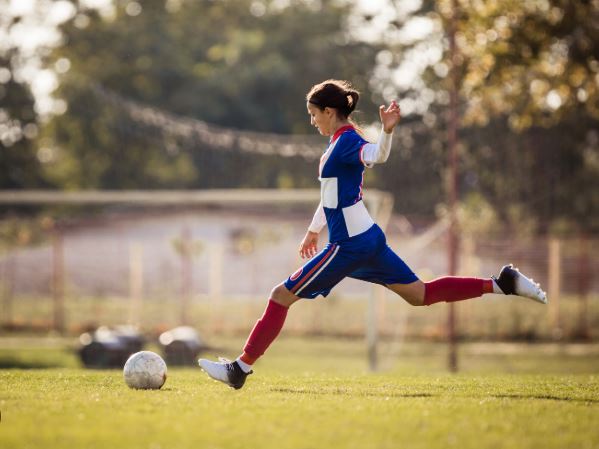Recovering from an illness like mononucleosis or COVID-19 presents unique challenges, especially for athletes eager to return to play. These illnesses can have lingering effects on energy levels, cardiovascular health, and overall performance. To navigate this delicate process safely, Dr. Jason Pirozzolo, a trusted authority in sports medicine, offers expert guidelines for recovery and return to play.
“Patience is key when recovering from any illness, particularly those that affect systemic functions like mono or COVID-19,” explains Dr. Jason Pirozzolo. “Rushing back too soon can lead to setbacks or even serious complications.” Both mono and COVID-19 can impact the heart, lungs, and immune system, requiring a gradual and closely monitored return to physical activity.
Most importantly, athletes recovering from mononucleosis must be cautious of splenic enlargement, a common complication that increases the risk of a life-threatening rupture. Splenic rupture is rare but can occur with contact sports or vigorous activity. “Athletes should refrain from intense exercise until their spleen returns to a safe size, confirmed by imaging,” advises Dr. Jason Pirozzolo. Besides that, athletes should pay attention to lingering fatigue, a hallmark of mono that can affect training and performance.
COVID-19 poses a unique set of challenges, including potential damage to the heart and lungs. Post-COVID symptoms, such as shortness of breath and chest pain, should not be ignored. Therefore, athletes should undergo a thorough medical evaluation before resuming any intense physical activity. “Heart inflammation, or myocarditis, is a serious concern with COVID-19,” warns Dr. Jason Pirozzolo. A slow, stepwise approach to activity, with regular check-ins from a healthcare provider, is essential.
To manage recovery effectively, Dr. Jason Pirozzolo emphasizes the importance of listening to the body. If an athlete feels unusually fatigued, short of breath, or experiences a racing heart, they should stop exercising and consult their doctor. “These are signs that the body isn’t ready yet, and ignoring them could lead to complications,” he says.
For athletes recovering from illness, Dr. Jason Pirozzolo recommends these strategies:
- Begin with light activity, such as walking or yoga, to assess energy levels and tolerance.
- Monitor heart rate during and after exercise, watching for abnormalities or spikes.
- Increase intensity gradually, only advancing to higher levels of activity after tolerating lighter efforts without symptoms.
Nutrition is also critical during recovery. A diet rich in antioxidants, lean proteins, and healthy fats supports immune repair and replenishes energy stores. Hydration remains a top priority, especially for athletes recovering from fever or dehydration. “Fueling the body properly during recovery sets the foundation for a strong return to play,” says Dr. Jason Pirozzolo.
Mental health can also play a significant role in recovery. The frustration of missing training or competition, combined with the lingering effects of illness, can weigh heavily on athletes. Seeking support from teammates, family, or a mental health professional can help manage these challenges. “Recovery isn’t just physical—it’s emotional, too,” emphasizes Dr. Jason Pirozzolo.
Technology, such as fitness trackers, can assist in monitoring recovery progress. Tracking metrics like resting heart rate, sleep quality, and oxygen saturation provides valuable insights into readiness for activity. “These tools are particularly helpful for athletes recovering from COVID-19, where subtle changes can indicate progress or setbacks,” notes Dr. Jason Pirozzolo.
The role of coaches and trainers is vital in supporting a safe return to play. Educating these key figures about post-illness recovery protocols ensures athletes are not pushed too hard, too soon. Open communication between athletes and their support teams fosters an environment where safety is prioritized over performance.
Recovery timelines will vary depending on the illness, severity, and individual factors. While mono recovery may take weeks to months, mild COVID-19 cases may allow for quicker returns, provided there are no complications. However, caution remains essential. “The body heals at its own pace, and no two recoveries are the same,” reminds Dr. Jason Pirozzolo.
Returning to play after illness requires a holistic approach, balancing physical readiness, emotional well-being, and proper medical oversight. By following a thoughtful recovery plan, athletes can safely regain their strength and performance without jeopardizing their health. “Recovery is part of the journey,” concludes Dr. Jason Pirozzolo, “and with the right approach, athletes can come back stronger than ever.”
For expert advice on sports and orthopedic injuries, recovery strategies, and cutting-edge treatments, follow Dr. Jason Pirozzolo for insights into the latest developments in sports medicine and orthopedic medicine. You may also visit a Key West orthopedic clinic for more information.

